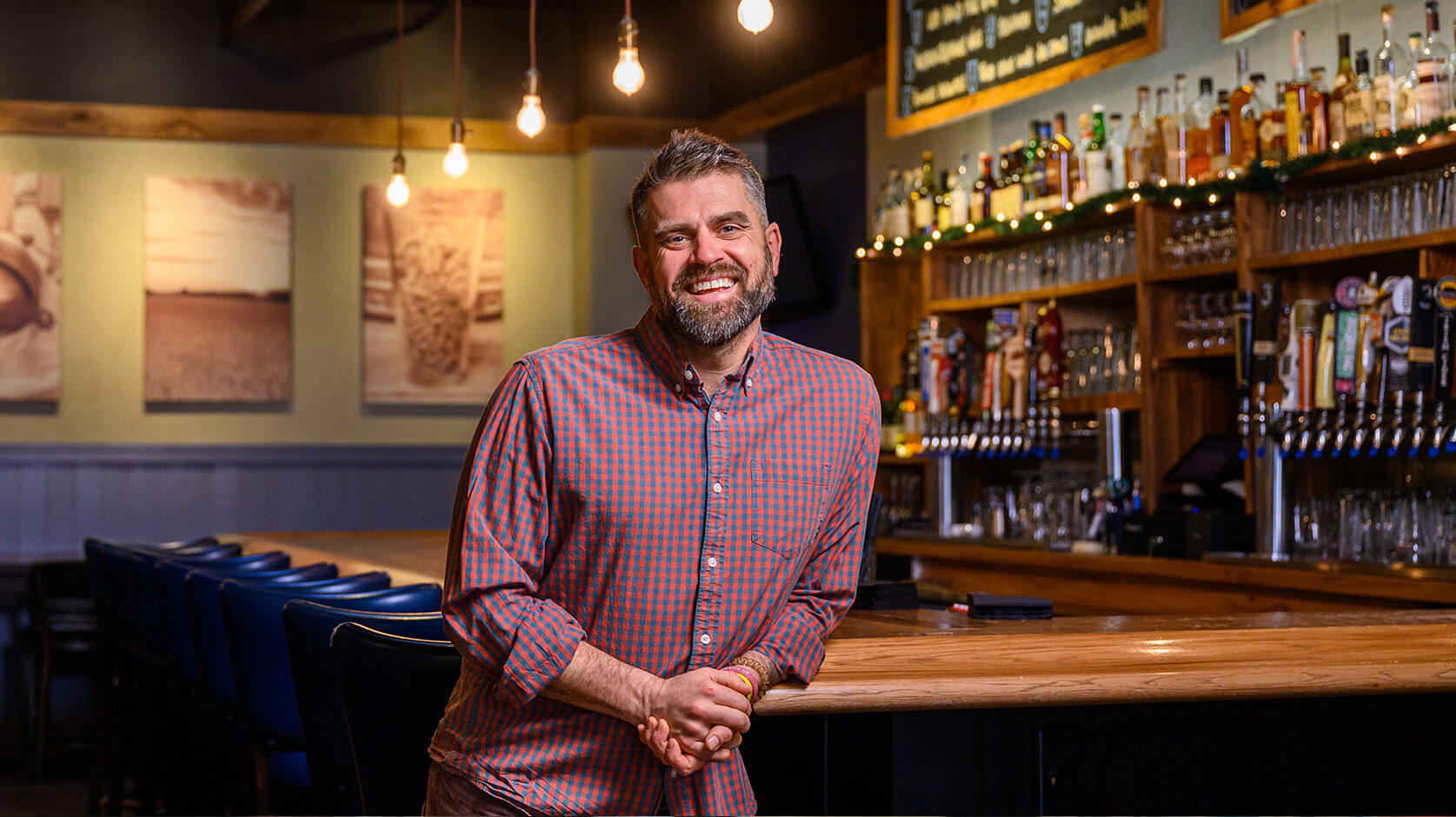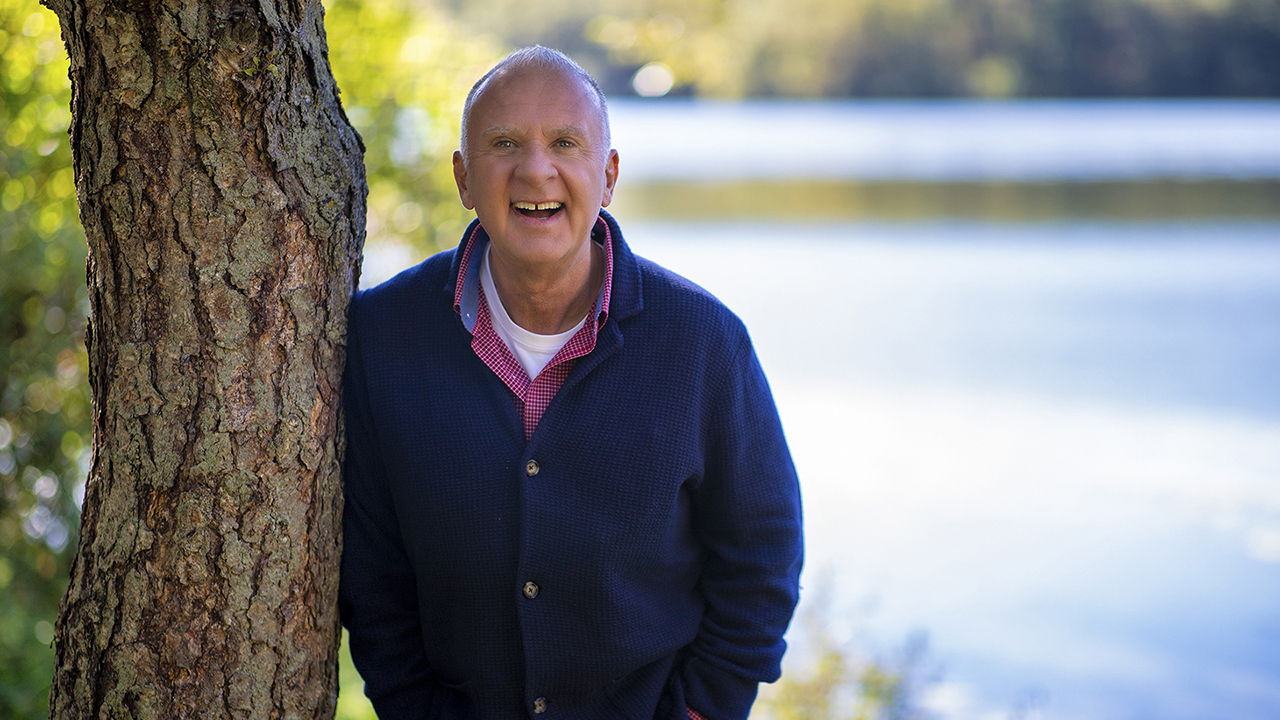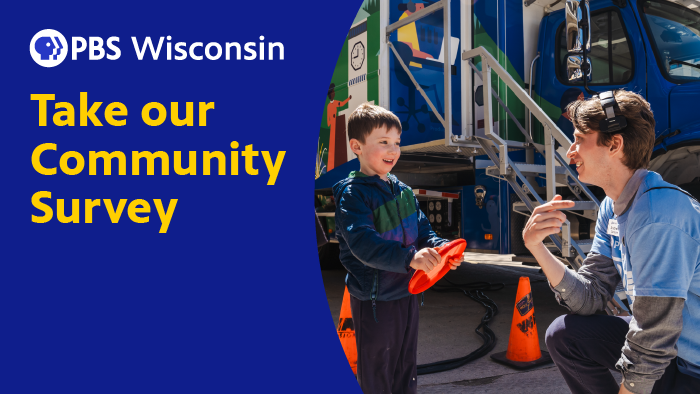[lively string music] [cheerful music] – Narrator: Have you ever flipped over a plastic bottle and seen a triangle with a number on the bottom?
That little number is a clue to the story of Milly Zantow, a Wisconsinite whose ingenuity and activism changed recycling all over the world.
When Milly heard that the landfill in Sauk County was going to close early, she was worried.
It was only five years old, and it was already almost full!
Even worse, toxic chemicals from the garbage were leaking into the ground.
What’s more, another landfill might not be ready for years!
Where would all the garbage go?
[garbage falling] And why were people making so much trash in the first place?
So Milly went to the landfill and started investigating.
She noticed the trucks coming and going, dumping lots of things, but mostly, she noticed plastic.
Plastic, plastic, plastic!
Milly knew a bit about plastic– how more and more things were being made with it, and how much of it was being used for packaging– stuff that people were using just once, then throwing away!
She also knew that plastic would not decompose for a long, long time.
Hundreds of years!
Something needed to change.
Milly had grown up on a farm during the Great Depression.
Her family made good use of everything they had, and when something was used up or worn out, they repurposed it.
She was as thrifty as they came, and all this waste didn’t make sense to her.
She knew some things were already being recycled.
Why not plastics?
Milly went to the county board and told them they should recycle the plastic waste going into the landfill, but they said they couldn’t because they didn’t know how.
She thought back to the plastic items she saw being dumped into the landfill.
Many of them were milk jugs.
So she called up a Milwaukee milk company with a question: [phone rings] – Milly: “What happens if there’s a defect in a milk jug?”
– Manufacturer: “Well, we just melt down the jug and blow it again.”
– Milly also went to local plastics companies and asked if they could use recycled plastic to make their products.
They told her it wasn’t that easy.
There were many different types of plastic mixed together in the garbage, but those different types couldn’t be melted together to make something new.
The plastic waste needed to be sorted, cleaned, and ground up for companies to be able to use it.
And who was going to do that?
[whooshing] Milly knew what she had to do: save the landfills from overflowing and save the Earth by recycling plastic.
She went to the nearby university to learn how to do tests to tell the different types of plastic apart: Scratch tests!
– Milly: Oh!
– Float tests!
[splash] – Milly: Ah-ha!
– Burn tests!
[plastic burns and sizzles] – Milly: Oh!
– Smoke tests!
[smoke poofs] – Milly: Ohhhh… [triumphant music] – Milly also knew that she would need a way to grind all that plastic so it could be used.
– Milly: Hmmm… – She needed a big grinder, an expensive grinder, and more than that, she needed help.
She turned to her friend Jenny Ehl.
– Jenny: “Where are we going to get $5,000?”
– Milly: “Well… what about our life insurance?”
– Milly and Jenny cashed in their policies, hopped in a truck, and drove to Chicago.
[gentle folk music] [truck horn beeps] They hauled their grinder back to Wisconsin and got to work.
They started E-Z Recycling in 1979.
Their business was all about making change in their community– getting people to join them in a recycling revolution!
Even the students from nearby schools helped by collecting plastic items to be recycled.
Word kept spreading and soon spilled over into other communities.
The recycling revolution was growing!
[popping] But the work was hard, and much more than they could do themselves.
They knew they needed a better solution to make recycling something everyone could do.
The main thing was all that testing.
What if there was a way to tell the plastics apart without all that extra work?
They put their heads together and came up with a brilliant but simple idea: a number for each of the different types of plastic!
Manufacturers could stamp this number into the plastic so that anyone, anywhere could sort and recycle!
It took years of work for it to catch on, but they didn’t give up.
Even after the numbering system started to get used around the world, Milly knew there was still more to do.
It wasn’t just about adding a number to a bottle.
It was about changing people’s beliefs and actions, and showing them how recycling would help people and the environment.
She helped with the writing of Wisconsin’s recycling law and she kept talking with people about the importance of recycling everywhere she went.
By seeing a problem in her community and rallying people around her to find solutions at every turn, Milly changed Wisconsin and the world.
Milly’s story is just the start.
There is still too much waste and not enough reusing and recycling, which means there are new opportunities for innovators just like you to help make the world better for everyone!
What do you notice in your community?
What will you do?
[wink] [upbeat folk music]
Search Episodes

Donate to sign up. Activate and sign in to Passport. It's that easy to help PBS Wisconsin serve your community through media that educates, inspires, and entertains.
Make your membership gift today
Only for new users: Activate Passport using your code or email address
Already a member?
Look up my account
Need some help? Go to FAQ or visit PBS Passport Help
Need help accessing PBS Wisconsin anywhere?

Online Access | Platform & Device Access | Cable or Satellite Access | Over-The-Air Access
Visit Access Guide
Need help accessing PBS Wisconsin anywhere?

Visit Our
Live TV Access Guide
Online AccessPlatform & Device Access
Cable or Satellite Access
Over-The-Air Access
Visit Access Guide
 Passport
Passport







Follow Us